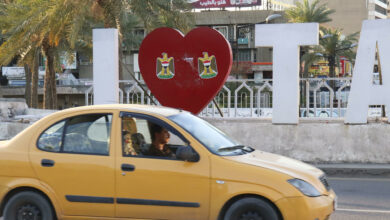Crisis-struck Bordeaux wine-growers to uproot 10% of vines

By Maria D. Valderrama
Libourne, France, Feb 25 (EFE).- Crisis-struck Bordeaux wine growers have asked the French government for financial aid to uproot vines in the iconic wine-producing region amid myriad challenges including a drop in the volume of red wine exports and consumption.
Vineyards line the roads for miles and miles in the Gironde department, home to the city of Bordeaux and where most businesses depend on wine in one form or another.
Of the 115,000 hectares of land dedicated to the vineyards, producers want to uproot at least 10% of vines in the region and have urged the central government to hand out financial aid as well as assistance in getting rid of excess “stock”.
“80 or 85% of our vineyards produce red wine and today in France and in other export markets there is a drop in consumption and an overproduction of red wine,” Stéphane Gabard, viticulturist and head of the Protected Designations of Origin Bordeaux and Bordeaux Supérieur union, tells Efe.
Gabard says that the famed region was the first to sound the alarm that is starting to echo across other wine-growing hubs in France.
The multifaceted crisis started during the pandemic lockdowns and the consequent fallout in global trade networks as well as increasing competition and complex weather conditions that have hampered harvests.
LESS CONSUMPTION PER CAPITA
Consumption of red wine has been decreasing since World War II when on average French citizens drank around 120 liters per year whereas today residents consume just 40 liters. In coming years the volume of red wine per person is expected to drop further to 25 liters a year.
Health habits have shifted, but so have the ways people socialize. Nowadays people engage in fewer large meals and family gatherings where red wine took center stage.
The focus has started to shift to white wine and rosé which is a popular choice for aperitifs and social gatherings.
This explains why other vineyards that harvest different varieties have not felt the impact as much as the Bordeaux region.
The government, which initially turned a blind eye to protests, recently green-lighted a distillation scheme of excess stock in 2023 at a cost of around 160 million euros which will be financed with state and European Union funds.
The program will drain around 2.5 million hectoliters of wine, mainly red, with professionals saying that the surplus is closer to 3 million across all appellations.
But winegrowers and sector workers are expecting fresh announcements as the Paris International Agricultural Show gets underway on Saturday.
“The president and the agriculture minister will come to the hall and have promised announcements. But if these are disappointing, my colleagues and I will protest against this policy,” Gabard, whose union represents a majority of the region’s more than 5,000 vineyards, adds.
Viticulturists are hoping to avoid policies that force them into trading at much lower prices thus decreasing the wine’s brand value.
The sector is also hoping new policies will help older winegrowers who are less able to adapt to new market demands to be able to retire and diversify their vineyards for other types of farming.




